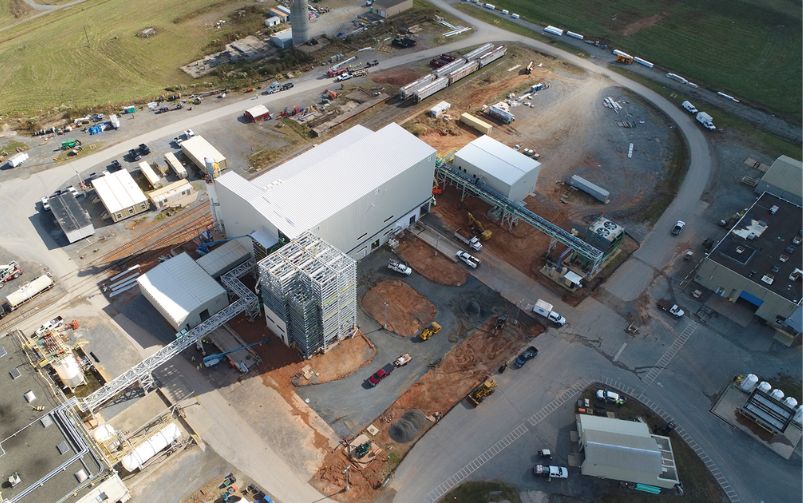Teck Chairman Emeritus Norman Keevil said he is open to future deals for the company, but only after Teck's planned spinoff of its coal assets. Courtesy of Teck Resources.
Teck Resources, Canada’s largest diversified mining company, has rejected two bids from Glencore this month, but the Switzerland-based miner has not backed down yet.
Glencore made two bids for Teck, on April 3 and April 11 respectively, which would see the mining giant acquire Teck and then create two separate companies – MetalsCo, which would be focused on metals, and CoalCo, which would be dedicated to thermal and metallurgical coal and carbon steel materials.
However, Teck’s board unanimously rejected both takeover offers. Teck intends to proceed with its own proposal, announced in February, to split the company and spin off its steelmaking coal business into a separate publicly traded company called Elk Valley Resources. Teck Resources would then be renamed Teck Metals Corp. and would be dedicated to base metals, particularly copper.
Teck shareholders will vote on the company’s separation plan at the annual shareholders meeting on April 26. The shareholders will vote separately by class, and at least two thirds of the votes from each class will need to be in favour of the plan for it to be approved.
On April 19, Glencore released an open letter from its CEO Gary Nagle to Teck’s Class B shareholders, which said that the company’s board had “consistently refused any engagement” with Glencore.
Teck has a dual class share structure, under which its Class A common shares carry 100 votes per share, while its Class B subordinate voting shares carry only one vote per share. According to Teck's management proxy circular, which was released on March 23, Teck Class A shares represent 60.5 per cent of the aggregate votes, and Teck Class B shares represent 39.5 per cent of the aggregate votes.
The majority of the Class A shares are held by Temagami Mining Company Limited, Sumitomo Metal Mining Co. (SMM) and Teck Chairman Emeritus Dr. Norman B. Keevil, representing approximately 79.7 per cent of the aggregate voting rights attached to the Class A common shares, which makes them the controlling shareholders.
On April 20, Sumitomo announced it will vote in favour of Teckʼs separation of its base metal business and its steelmaking coal business. Sumitomo holds 18.9 per cent of the Class A shares, and a 49 per cent interest in Temagami Mining, which itself holds 55 per cent of the Class A shares.
“As a shareholder of Teck, SMM confirms its continuous support for Teckʼs plan to create two separate world-class independent companies, which aims to generate long-term value for Teckʼs shareholders,” the company said.
Keevil issued a statement on April 16 to address the future of the company: “Glencore’s proposal is the wrong one, as well as the wrong time. I fully agree with Teck’s board that there is no deal to be done pre-separation with Glencore or any other party.”
In his statement, Keevil said he would support a transaction with the right partner, and only after Teck separates its base metals and steelmaking coal businesses. “I believe that pursuing a sale or merger transaction now would rob our shareholders of significant post-separation value,” he said.
Teck’s Class B shareholders have fewer votes but own almost all the company’s equity, and Glencore is now appealing to them directly in its merger-demerger attempts. In the letter, Nagle warned Teck’s Class B shareholders that there is a risk that the Teck share price could respond negatively if the proposed Teck separation is approved, saying that Teck Class B shares reacted negatively to the initial announcement in February about the company's separation plan. He added that Glencore's proposal will stand if Teck delays its shareholders meeting, or if Teck shareholders vote down the proposed Teck separation at the shareholders meeting.
In addition, he said that Glencore is willing to make an offer directly to Teck shareholders if the proposed Teck separation does not proceed, and that the company is willing to consider making improvements to its proposal.
Nagle concluded his letter by saying: “We urge Teck shareholders to take action to ensure that the Teck board engage in bona fide negotiations regarding Glencore’s proposal to see if this is a path for Teck shareholders to maximize value from their Teck shares.”
Teck responded the same day to what it called “Glencore’s latest attempt to frustrate value creation for Teck shareholders,” stating in a letter to its shareholders from CEO Jonathan Price that Nagle’s letter “changes nothing” and that the company continues to recommend that its shareholders vote in favour of its planned separation.
“This is a distraction – a transparent and opportunistic attempt to disrupt our separation plan with an ill-defined and highly uncertain proposal,” said Price in the letter. He added that Glencore continues to undervalue Teck in its proposals, and that under its proposal Teck’s base metals business would be “permanently contaminated by one of the world’s largest oil trading businesses,” which would destroy its value.
Price stated that Glencore’s claims that Teck has refused to engage are “simply not true” noting that Teck’s board carefully reviewed both proposals before rejecting them, and communicated its reasoning in letters to the chair of Glencore’s board.
He added that the offers were only “slightly modified” from a proposal Glencore made in 2020, which Teck engaged with for more than six months before deciding it was not in the best interests of its shareholders, and that further discussions in late 2022 and early 2023 “confirmed [Glencore’s] proposal remained essentially unchanged, with the same flaws, risks and uncertainties.”
He concluded his letter: “Now is not the right time to pursue a transaction with Glencore. We fully believe that Glencore’s proposals are nothing more than an opportunistic attempt to interfere with the vote at Teck’s annual and special meeting of shareholders on April 26th to their benefit and to the detriment of our shareholders.”
In the Teck Copper Growth Conference Call on April 18, Price had reiterated Teck’s previous position from its April 10 press release, in which the company had said that a deal with Glencore was not an option and that shareholders could either vote for Teck’s proposed separation plan, or vote to maintain the current state of affairs.
“A vote against is a vote for the status quo, which means less optionality and far fewer paths to create value,” he said on the conference call. “There is no other alternative on the table. And to be clear, Glencore’s rejected proposal is not a realistic or viable option. Most importantly, for an investor perspective, it wouldn’t have gotten close to execution for at least two years, if ever. Our board and our Class A shareholders have been clear it is a non-starter.”
He added that Teck sees its base metals portfolio as undervalued in the market. “As the demand for copper continues to rise and the constraints on new supply persist, so will the value of strategic, high quality copper growth assets,” he said. “Given that context and with a premium base metals portfolio and substantial growth in both the near and long term, Teck Metals clearly warrants a premium valuation in the market.”
In its second bid for Teck on April 11, Glencore boosted its initial US$23.1 billion all-share proposal by introducing a cash consideration alternative in lieu of shares in CoalCo, which it said would “effectively buy Teck shareholders out of their coal exposure.”
In a press release two days later, Teck said the revised proposal was not in the best interests of its shareholders and that the Teck board and management team remain committed to the company’s planned separation.
“The fundamental flaws of Glencore’s revised proposal continue to make it a non-starter,” said Price in the company’s April 13 release. “It does not address major inherent risks, including substantial regulatory hurdles, jurisdictional and ESG concerns, and diluting the base metals business with significant oil trading.”
According to news reports, Teck will not be short of alternative offers if shareholders approve its separation plan next week. The Globe and Mail and Reuters both reported on April 16 that six major mining companies, including Vale, Anglo American and Freeport-McMoRan, are said to be interested in transactions with Teck Resources if the spinoff goes ahead.
Canadian politicians are also monitoring proceedings. In an interview with Bloomberg News on April 17, Natural Resources Minister Jonathan Wilkinson said that the federal government is following the attempted takeover closely, noting that Teck is an important player in Canada’s mining sector and that it’s a “positive thing for Canada” to have major companies headquartered locally.
On April 18, British Columbia Premier David Eby told Business in Vancouver that he is “incredibly concerned about this hostile takeover proposal from Glencore” and that, while the provincial government doesn’t have the legal authority to block a takeover, he will be lobbying the federal government to do what it can to prevent the transaction from taking place.




